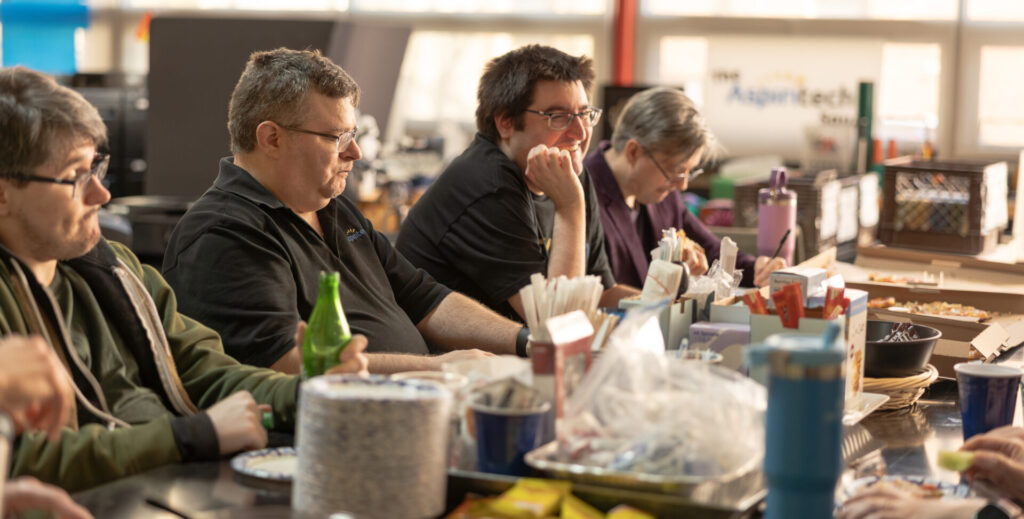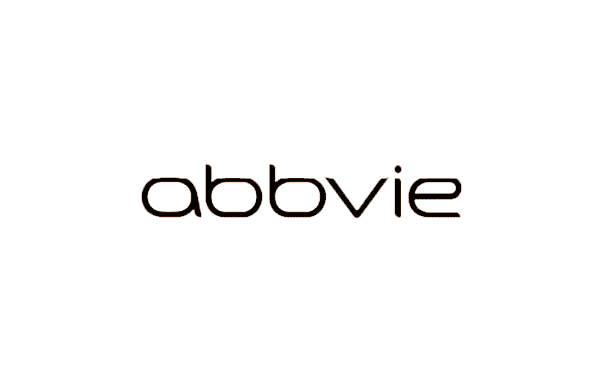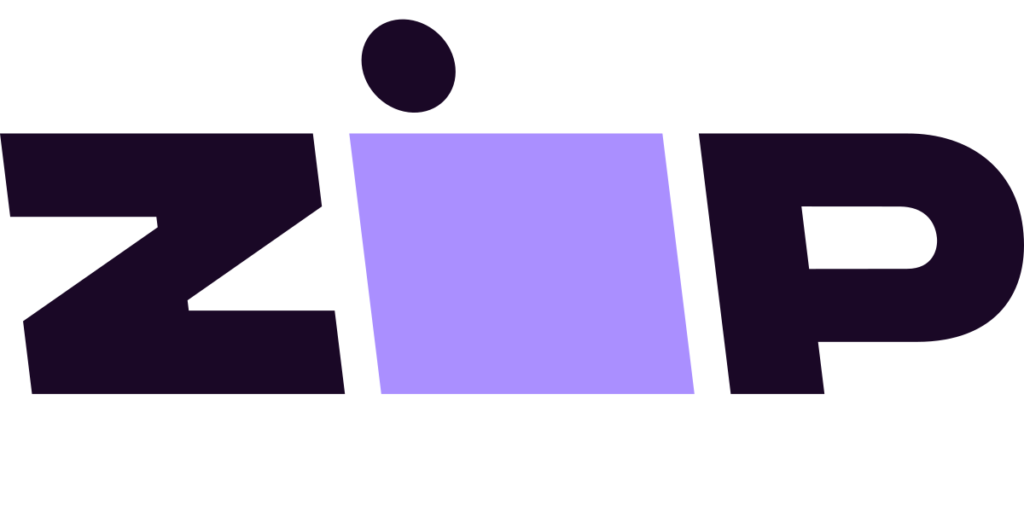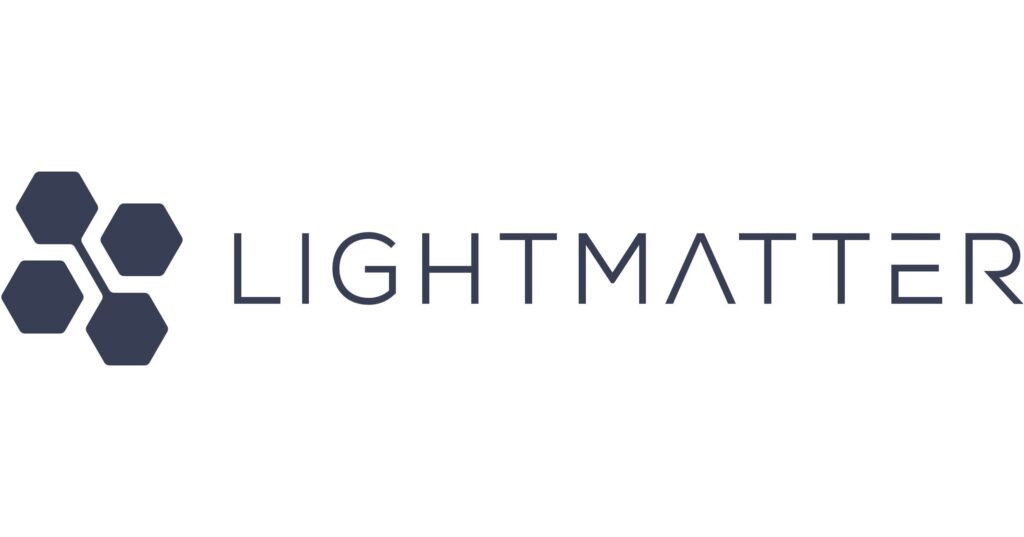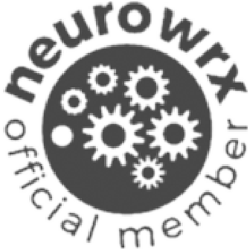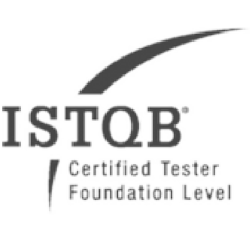Episode Transcript
Tara May: Hi there! In today’s episode of On the Verge, we have Rebecca Beam with us. Rebecca Beam is founder and CEO of Zavikon. Prior to launching Zavikon, she was a founding advisory member launching MindSpark, whose mission was to train and employ adults on the autism spectrum into technology careers. Rebecca was then president of the US. operations, leading the US. expansion and driving growth when MindSpark was acquired by Auticon. As a veteran of the tech sector, Rebecca’s career has included senior leadership roles, sourcing and developing human capital with high-demand skillsets for the area’s leading tech firms, including Fortune 100 and 500 brands. Rebecca believes there is a job out there for everyone to apply their talents and skills [to] in a meaningful way, and she is dedicated to being a bridge to an inclusive working world. Rebecca, thank you so much for joining us today.
Rebecca Beam Thank you for having me. I’m excited to be here.
Zavikon’s Approach to Solving Neurodivergent Unemployment & Underemployment
Tara May Awesome. So, I would love to start with your current passion: Zavikon. I’d love to have you tell us a little bit about the organization, and what drove you to found it, and what it is that you do.
Rebecca Beam Okay, I’d love to. So, Zavikon is an employment agency and a consulting firm, and we place individuals with disabilities and those who are neurodivergent in career-oriented employment, and we do it in a supported manner. We also consult with large companies to help them add this type of hiring to their diversity, equity, and inclusion efforts. It is oftentimes overlooked, and although it crosses over all demographics, [so] it’s really important.
And you asked me what led me to start Zavikon. So, when I was leading Auticon, they were a consulting firm. And when I would speak with companies, they would say, “Hey, Rebecca, we really want to work with you, but we want to hire the people.” My mission is the unemployment/underemployment rates to solve that. And so when I would hear those words, I’d be like, “That’s music to my ears. You mean you wanna hire?” And I figured out that they really didn’t know how to. Like, they were pensive about the journey, and if they were gonna get it right—and I’ve done it, and I knew I could help them. So that’s why I started Zavikon, and we launched in March of 2021. Kind of a weird time to launch a company. But it has been an incredible journey so far, and I just wake up every day excited about the work that we do at Zavikon.
Tara May I think you said something really critical there. You’ve talked about “in a supported manner.” I think that is so crucial to the success of organizations like yours—like Aspiritech’s. Can you talk a little bit about what a supported manner looks like for Zavikon, and what you believe it should look like for other organizations?
Rebecca Beam Sure. Well, we believe, you know, in an individualized approach, number one. I mean, one size does not fit all. So when you approach, you know, working with someone and figuring out how to set them up for success, it is about the individual, period. So, we start with the interview, and we really feel that education is key; so we start by educating the interviewer about the person that they’re going to interview, and I can give you some examples.
We had a young man right when we opened the doors, who had passed five actuary exams on his own, which is unheard of. I mean, he’s a brilliant mathematician. But he has auditory processing challenges, and so when he would be asked a question in an interview, he could have like a minute—even, sometimes two minutes of complete silence—while he was formulating his answer. He had had over a hundred failed interviews before he met us, and when he met us he was just like, “I’m just gonna take any data entry job never gonna get a job being an actuary.” So all it really took was for us to coach the interviewer to just ask the question and be silent, so that he could think about the answer, and then he would speak. Because oftentimes interviewers would interject or think he didn’t know the answer, or that they needed to repeat, and they would break his train of thought. That one simple little nuance to his interview changed everything, and he’s hired now, and in one of the top actuary programs in the country, living independently—and it [was] just that one little thing.
Then comes the support, and companies call it “accommodations”. We call it “success factors”. And in terms of like, ‘how do we get this person positioned properly again?’ starts with education of the person that they’re gonna report to and their coworkers. And we go in, and we do that education process—we educate them about the individual, and about their diagnosis, and how it impacts them, and how to set them up for success. And those things that need to be done too really work with them. So that’s what we do. Once we place the person—we’ve onboarded them, we’re there for 90 days. We will stay longer if we have to, but 90 days is usually enough time to get everybody firmly working with each other and supporting each other in the proper way.
Tara May That example just gave me chills up and down my arms because it’s so true, right? The interview can be such a big hurdle, especially for neurodivergent people. And so, to be able to offer them the success factor to understand what they’re truly capable of is really just absolutely critical.
The Global Workplace Neurodiversity Movement
Tara May So in addition to your work at Zavikon, we know each other because you are co-chair of Neurowrx. Do you want to talk a little bit about that organization and sort of the importance you see of organizations like Zavikon having a coalition around them, working at this collaboratively and together? Because I think it’s such a critical piece. There’s so many little things going on in the neurodiversity employment movement, that bringing it all together helps make us stronger together. And we need to do more of it, I feel like.
Rebecca Beam Yeah, I think one of the most important things about Neurowrx: it’s a global alliance. And so we have impact globally. But we also get to understand the nuances of their culture and the work that they’re doing and how it’s impacting their communities. We get to, I mean, share best practices—we open our kimonos to each other. And we’re not afraid to do that, because we all very mission-driven. And so those of us who are part of Neurowrx are people who really, really want to see change. And we know we’re better together—and by sharing how we do it. I am so honored to be part of Neurowrx and to have that collective intelligence.
The Future Neurodiversity Employment Landscape
Tara May When you think about the neurodiversity and employment and landscape, what do you hope it looks like ten years from now? Twenty years from now? And I know that’s a big question, but I think we’re all working towards a greater good here when we talk about this, and we have something longer term in mind. What do you envision in a decade? Or two decades from now?
Rebecca Beam I envision not having to be around doing what I do—that companies will just automatically understand and do it. You know it’s not that hard and the one challenge that, you know, I’m trying to figure out, because, you know, we work with many individuals that don’t have super-high support needs… But how do we help those individuals that do have higher support needs to be able to have meaningful employment and have that support? I’m not sure about the rest of the country, but here in California, there’s there’s a lack of job coaches and and people that are there to help support. So how do we fix that? Well, I kind of feel like each company should have their own career job coach internally to help support people. But we have to figure that out—that’s a big challenge. But I mean, I would like to envision a time where the work I do is just natural for companies to be doing themselves.
Tara May I love that answer, right? We’re trying to put ourselves out of a job in in essence, which is a weird thing to say. But you’re so right and and it’s funny you mentioned California. I think, actually, California is doing a better job than a lot of states, which tells you where the bar is. I mean, I was just having a conversation with Work Now Hawaii, and because they’re bottom of the barrel, in terms of working with people with disabilities and neurodivergent people.
Rachael, I see you over there with a hand up. Do you want to jump in? You have something to share?
Rachael Brusic Yeah, actually; I actually had a question for you. So, how have you kind of seen the neurodiverse employment field kind of shape and mold after you started to Zavikon and your time in Neurowrx? How have you seen corporations and a general viewpoint on neurodiversity hiring initiatives?
Rebecca Beam Well, they’re talking about it. You know, they’re talking about it. It’s it’s top of mind. I’m speaking with many, many, many corporates. And most of the time I hear, “Yes, this is on our, we’re talking about this. We want to do this. You know, we have an employee resource group dedicated to neurodiversity. And this is very important for us.” So that discussion is happening. Now, you can talk all day long. But you gotta take action, right? And so that’s where Zavikon’s coming in. We’re trying to help them and guide them to taking action. And I get it. It’s scary like, “What if we get it wrong? Oh, gosh, this could be a PR disaster,” you know. “What if we violate some type of law?” Or, you know, there’s all these considerations, right? But they’re talking about it. And we are seeing more and more action happening, as well.
Tara May Rachael, I love that question. It was such a great one. And Rebecca, your answer resonates with me because I see the same thing, right? Like, at least we’re having a conversation. And the ERG groups for neurodivergent people are definitely having a moment in time.
Neurodivergent Diagnosis as an Adult
Tara May And I think I hear a lot; it’s driven in part by the better job we’re doing diagnosing children and a lot of parents then understanding neurodiversity or understanding how they themselves may be neurodivergent. And I think that is fascinating. And it’s part of what drives you too, Rebecca, right? I mean, I know you’re very open about sharing your own neurodiversion. Talk a little bit about that—what it’s meant for you and your career, and how it helps drive you and your mission.
Rebecca Beam Yeah, so I didn’t start this in this work knowing that I was neurodivergent. I was diagnosed as an adult—and you know, it was a cathartic moment for me. It really did explain a lot, especially the challenges I had as a child. It also explained a lot of some of the challenges I personally had in the workplace. Definitely, being an entrepreneur has been, like, a great path for me because I – I’m not a conformist. I have a hard time conforming, but it’s been a journey, and it’s been a very interesting one. It has, you know, sparked more passion in me to to help people like me. But it also—I don’t know—it helped me love and embrace my creativity and differences. So yeah, I want to see that for other people like me.
Tara May That’s so fantastic. And what a journey it is for every single one of us as humans to learn to love ourselves, right? This is a really profound thing, and certainly, the corporate workplace doesn’t always make that easy. Rebecca, you and I share something in common, I think, which is our desire to understand how the universal design of thinking about neurodiversity in the workplace is actually good for all people in the workplace. And thinking about leadership and management in a way that’s driven from kindness and compassion and empathy, and wanting that to drive and shape our cultures, rather than the sort of demanding management style of the past. Love to hear you talk a little bit about that, and how it intersects with your work at at Zavikon, and just the way you approach building the culture of your own organization.
Rebecca Beam Yeah. So I loved what happened when we placed the young man, the young actuary in the workplace. So we went in, and it’s, “I interview best when …” and “I work best when ….” And we all need something to help us work better. I don’t care, you know, who you are, there’s something. And it was so interesting. So when we went and we did our work with the teams, and we actually trained the entire team that was going to be working with him, and they started asking each other, “How do you work best?” And that became something amongst their team that they discussed. So that they were, you know, they wanted to help each other work better. And I thought that was so neat. And I hope that, you know, this work will help organizations look at their entire teams and ask, “How do they work best? What do they need to be more successful?” And that’s what we’re trying to do here. So we’re a teeny tiny team; but we do focus on each individual that’s working with us to make sure that we’re setting them up for success, and we understand how they work best. And we try to support that.
Tara May I love that. Rachael, were you gonna jump in?
Rachael Brusic Yeah, actually; I will say I think it’s fantastic for everybody in the workplace hearing you say that all of their employees are now asking each other, “Hey, how do you work best? What kind of supports do you need?” I think that that just goes to show on a very human level that there is nothing wrong with needing help. Nothing wrong with needing a little support at your job to do your day-to-day. We all have things going on. I just think that’s such a beautiful thing. But I did …
Challenges and Partnerships
Rachael Brusic But I did—I was curious. Did you ever run into any difficulties in the early days of Zavikon? And kind of how did you address that?
Rebecca Beam Yeah. You know, I think our biggest challenge is the time it takes to get these programs launched and the effort that it takes to actually get the companies to take action. It’s just a very long sales cycle, a very long journey. And so for a small—you know, bootstrap business—that can be challenging. But you know, we persevere. And we actually have a partner who really helped launch us. And there’s going to be some stories being told about this coming up, but that’s ZoomInfo. And ZoomInfo is a database that has, you know, all the companies’ personnel listed and their email addresses, and they really helped us get going from a sales perspective. They loved our mission, and we couldn’t afford their license, but they offered us a license for a good long period of time, and we were able to, you know, get the diversity, equity, and inclusion leaders out of the different companies and the heads of HR, and really reach out to them with the messaging about neurodiversity hiring and disability hiring and diversity, equity, and inclusion missing this element, and without them, I don’t know where we would be, because we actually were able to propel ourselves in such an incredible way by utilizing those contacts through ZoomInfo, and I cannot thank them enough.
Tara May Having good partners makes all the difference, right? It’s really true.
Rebecca Beam Right? And when I started Zavikon, you know, one of the things I said is, “I’m going to partner with anybody who wants to partner with us,” because again, we’re better together. And I know that sounds very cliche, but it is super true. And so, you know, we partner here in California with the Department of Developmental Services, with the Department of Rehabilitation. We have tons of community partners across the US. And really, that’s that’s key.
Tara May I love that. I take very much the same approach: “You want a partner? I’m in. How can we help each other?”
Identifying How People Work Best
Tara May So, I think this has been a fantastic conversation. I would love for us to wrap up by, Rebecca, following your amazing lead, and showing the world how important it is to walk-the-walk ourselves by each of us sharing how we work best, and what challenges us in the workplace. So I’ll go first, then Rebecca, then Rachael, and Robin. I’ll cue you up, so you’ll have time to think about it. But I work best with a goal in mind. Give me a goal and give me some freedom, and I will come up with a way to work toward that goal.
My biggest challenge is when there is a culture of finger-pointing or blame, and part of it is because I will get very defensive, and I will get very defensive for the people around me, and I don’t think it’s a productive thing to do, so it stresses me out. I’m like, “It doesn’t matter whose fault it is. Let’s just figure out how we fix it and how we move forward and learn from it.” So those are my two big areas—Rebecca, what are yours?
Rebecca Beam I work best when the people around me are compassionate and, you know, work and lead from a compassionate perspective. We all have challenges in the workplace. One of mine is, I can have incredible anxiety. And so sometimes that comes out in being super hyper laser-focused and not really paying much attention to what’s going on around me. And maybe I seem, you know, a little short or, you know, not really in tune with what’s happening, and working with somebody who can stop me and say, “Hey, hey! Come back,” you know, and not be offended by sometimes how you kind of like a bulldozer I can be. That helps me, and I have that in in my business partner—that she’s very understanding and compassionate to me personally. Hilary is fantastic. I couldn’t have asked for a [better] business partner, and she really does understand and adjust for me, and I try to do that for her.
Tara May I love both of those. Rachael, would you be willing to share yours?
Rachael Brusic So for me, I guess communication is probably the best way that I work. I love to work at a company where I can sit down with the CEO, or I can sit down with a manager, regardless of titles, and we can all work together as a group. There’s not this this fear of, “I can’t talk to the manager. It’s not my place.” Because at the end of the day, I think we all have great ideas, and I think everyone’s voice is valuable.
So for me, I work best in a very relaxed, open environment, where people are not afraid to raise their hand to ask a question, to come up with a better idea than what we’re doing. That kind of an environment is usually perfect for me. And it it was. It was struggling sometimes, starting out in corporate America. I think there was a lot of that old world, that it’s changing now so rapidly in the business sector. But that old worldview of, you know, “whatever the boss says goes,” and I’m seeing a lot of corporations now start to have dialogue with their employees and say, “Well, what do you think?” And I found that a lot of employees, regardless of the industry, they’re the ones dealing with all the issues every day, and they sometimes have the best problem-solving skills I’ve ever seen. So a relaxed environment for me would be the best one.
Tara May Fantastic! Robin, how about you to wrap us up?
Robin Kacyn Surely. So this was actually sort of a surprise for me. But I work best when I am goal-oriented and when there is a structure in place for me to accomplish my goal. And that was a surprise, because I sort of thought that I was a free spirit and that I could work under sort-of chaotic and strange conditions. And that is just not true. I don’t do well—I get overwhelmed, I get super anxious, and it doesn’t work for me. So I need a nice structure. Sometimes, it’s really helpful. Oftentimes, it’s really helpful to ask somebody to maybe help me develop that structure. Not great at doing that myself; I’m a bit disorganized in my brain a lot of the time, and so then I can better accomplish and reach my goal.
My challenge is much like what a couple of you spoke about. I can be very—I can get very defensive when I feel that somebody around me is wronged. I jump into very unprofessional territory when that happens. And I’m grateful that I’ve been able to use my voice. But one of the things that I love so much about Aspiritech is that those conversations are encouraged and they are supported. And we have a supportive environment that allows for different issues to be brought up in a really kind way. So, that has been an absolute dream come true of mine. But that’s a big, big, big blocker for me sometimes.
Tara May That makes me so proud of our culture.
Rebecca, I can’t thank you enough. Not only was this a wonderful conversation, I think that was a really fun exercise that I may take to some of my other meetings to find out more about my coworkers, because what a great way to learn about your colleagues, right? To understand what conditions they thrive under and what stresses them out. I love it! That was fantastic!
Rebecca Beam Great! Well, thank you. This has been fun. I really appreciate you having me.
Tara May Wonderful—have a fantastic day! Thank you for joining us on On the Verge.
